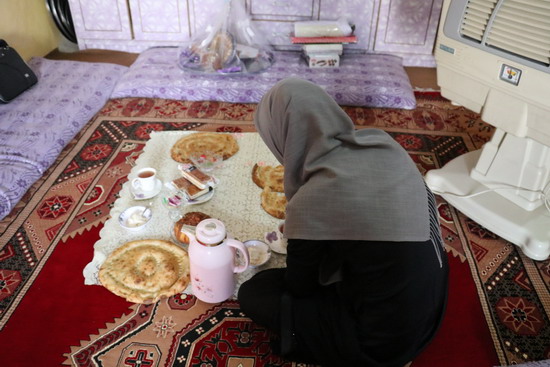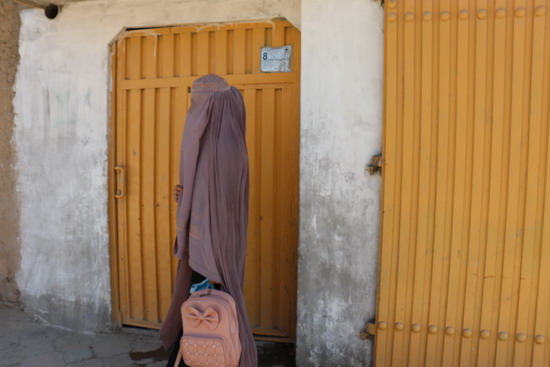 Dr Elaha prepares to head out for the day to educate communities on polio and COVID-19. ©WHO/Afghanistan
Dr Elaha prepares to head out for the day to educate communities on polio and COVID-19. ©WHO/Afghanistan
Dr Elaha doesn’t underestimate the danger of her work to fight COVID-19. She explains, “I start my day at 8am by visiting private and public clinics, pharmacies, traditional healers at their homes. Of course, I am worried about myself and my family getting COVID-19. My mother is elderly, and COVID-19 can be dangerous for her.”
“However, I am committed to serve my people and go out in the field to help save others’ lives. It is not easy. My family understand that I am a medical doctor, so no matter what virus is there, I have to do my job as a doctor.”
Through her work, Dr Elaha has come up against rumours and misinformation. A major part of both ending polio and fighting COVID-19 is working to inform and build trust with communities about diseases and how they can be prevented.
Elaha says, “A lot of people thought that COVID-19 was a disease of nonbelievers. At first, when I used to go to clinics, because of my medical degree, they respectfully listened to me. However, when I talked about COVID-19 and washing hands and other preventative methods, they would tell me that this disease was for nonbelievers.”
“Unfortunately, a lot of people got sick and many also lost their lives. People have started to believe the pandemic. They know that people can get sick and die of the disease.”
Although public awareness about the dangers of COVID-19 has improved, Dr Elaha believes there is still plenty to do to encourage communities to adopt disease prevention measures such as widespread mask wearing.
Until the pandemic is over, she is determined to work long hours to fight both polio and COVID-19. The polio workforce currently contributing to COVID-19 response includes almost 36,000 members of the Polio Surveillance Network, and over 47,000 polio frontline workers.
 Dr Elaha heads out for the day to educate communities on polio and COVID-19. ©WHO/Afghanistan
Dr Elaha heads out for the day to educate communities on polio and COVID-19. ©WHO/Afghanistan


